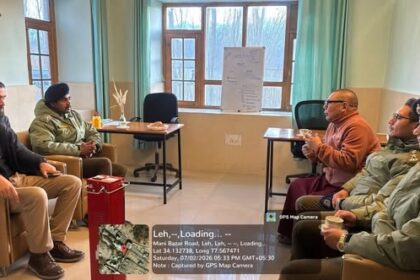||Black and White Digital News ||
||Parvinder Singh June 15,2024||
Jammu: Hoteliers in Jammu are grappling with substantial financial strain due to soaring electricity bills, exacerbating the already challenging economic conditions in the hospitality industry. This situation is putting immense pressure on hotel operations, affecting profitability and sustainability.
Despite adhering to industry standards and maintaining high service quality, hotels are finding it increasingly difficult to manage operational costs, with electricity bills being a significant contributor. The high cost of electricity is impacting hotels’ bottom lines, making it harder for them to offer competitive packages and attract tourists.
The issue of high electricity costs is compounded by several factors. Recent security alerts and heightened measures have led to a decline in tourist inflows, directly affecting hotel occupancy rates. With fewer guests, hotels are struggling to cover their fixed costs, including electricity bills, which remain high regardless of occupancy levels.
A prominent hotelier from Jammu, speaking on the condition of anonymity, shared the industry’s growing concerns. “The exorbitant rates of electricity and the present security issues are leading to significant losses for us. We are finding it difficult to sustain operations under these conditions,” he stated.
Further compounding the problem is the fact that many hotels in Jammu have been empaneled by the government under various industry initiatives. However, despite this recognition, they are not receiving the expected benefits and incentives that should come with such empanelment. Hoteliers argue that the government policies should provide more substantial support, including financial incentives and reduced electricity tariffs, to help mitigate operational costs.
The current tariff structure and billing practices do not account for the unique needs of the hospitality industry. Hoteliers argue that hotels, being significant contributors to the local economy and employment, should receive more favorable rates or subsidies to help alleviate this burden.
The impact of high electricity bills extends beyond financial strain. Hoteliers warn that if the situation persists, it could lead to job cuts, reduced service quality, and even closures, further harming the local economy and tourism sector. The ripple effect of such outcomes could be devastating, given the significant role hotels play in Jammu’s economic landscape.
Industry leaders and hotel associations are calling for immediate intervention from government authorities. They are seeking dialogue with policymakers to address the issue and explore potential solutions, such as revising the electricity tariff structure for hotels, implementing energy-saving initiatives, and providing financial relief measures.
As the hotel industry in Jammu navigates these challenging times, the resilience and adaptability of hoteliers will be crucial. Their ability to sustain operations and continue attracting tourists will depend significantly on the support they receive in managing high electricity costs and other operational pressures.
In the meantime, hoteliers remain committed to maintaining high service standards and exploring innovative solutions to mitigate the impact of high electricity bills. Their efforts aim to ensure the long-term viability of the hospitality industry in Jammu, which is vital for the region’s economic health and tourism growth.
Leave a comment
You Might Also Like
SSP Leh Along with District Officials Visit De-Addiction Centre Leh, Encourage Patients Towards Recovery and Rehabilitation
SSP Leh Along with District Officials Visit De-Addiction Centre Leh, Encourage Patients Towards Recovery and Rehabilitation Leh, Feb 9: Today,…
1 Min Read
Katra Roop Way Bun Kar Rehega MLA Katra Baldev Raj Sharma Ka Bayan Me Jeeta He Isi Promise Pe Hu
Katra Roop Way Bun Kar Rehega MLA Katra Baldev Raj Sharma Ka Bayan Me Jeeta He Isi Promise Pe Hu…
0 Min Read
PDP Na BJP K Sath Alliance Na Kiya Hota Aaj Article 370 Bhi Hota Aur J&K Ki Halat Bhi Behtar Hoti Nc Senior Leader Mubarak Gul
PDP Na BJP K Sath Alliance Na Kiya Hota Aaj Article 370 Bhi Hota Aur J&K Ki Halat Bhi Behtar…
0 Min Read
Implementation of Rural Development Schemes Concludes at Leh
Implementation of Rural Development Schemes Concludes at Leh Leh, February 07, 2026: The three-day State-Level Training Programme on Effective Implementation…
2 Min Read









